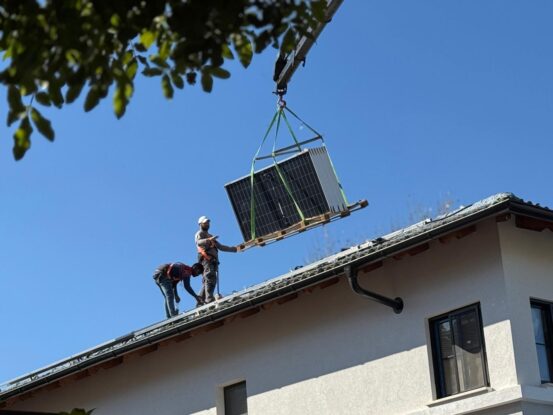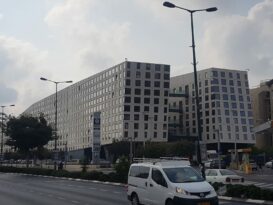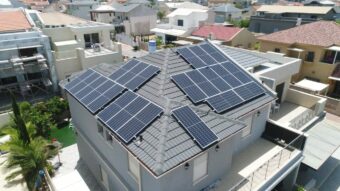According to new regulations that came into effect on Wednesday, all new non-residential construction with a rooftop larger than 250 square meters, and all new single-family residential homes with a rooftop over 100 square meters, will be required to install a rooftop solar panel system as part of the building permit process. The regulations exclude certain types of buildings and allow engineers, at the time of the permit application, to grant exemptions from the requirement in specific cases.
By Doron Breitman, Nadlan Center
New regulations requiring the installation of rooftop solar panels (photovoltaic systems) in new construction came into effect on Wednesday. Under this policy, all new non-residential buildings with rooftops larger than 250 square meters and all new single-family homes with rooftops larger than 100 square meters will be required to install rooftop solar panels as a condition for receiving a building permit.
However, the regulations make exceptions for certain types of buildings. These include structures used only for roofing, such as sheds or canopies supported by pillars with no walls; buildings located on the beachfront between the first row facing the sea and the shoreline; ritual baths (mikvaot); additions to buildings designated for preservation; and buildings that are entirely underground or have rooftops no more than two meters above the surrounding ground level.
In addition, during the permit application process, the regulations allow engineers to grant exemptions from the rooftop solar panel requirement in specific cases. These include rooftops that are too shaded to generate the necessary amount of electricity; buildings with unique architectural value that could be compromised by the installation; rooftops that function as roof terraces for upper floors; situations where installing a solar panel system would prevent other permitted and essential rooftop uses; and cases where, according to the structural planner’s assessment, the building’s stability cannot support the system.
These regulations are a continuation of Government Decision 176 from February 2023, which determined minimum rooftop size requirements for installing such systems and removed building height restrictions. The decision also called for the creation of a task force—including the Ministry of Energy, Ministry of Finance, Ministry of Environmental Protection, Ministry of the Interior, Ministry of Health, Ministry of Agriculture and Rural Development, Israel Land Authority, Planning Administration, and the Prime Minister’s Office—to promote initiatives supporting the development of renewable energy systems on built-up areas and encourage dual-use of land.
In August 2024, the National Planning and Building Council approved the new regulations led by the Ministry of Energy and Infrastructure and the Planning Administration. These regulations, which now require all new non-residential buildings and new single-family homes to install rooftop solar panels for renewable energy generation, were officially signed into effect yesterday by Interior Minister Moshe Arbel.
The Society for the Protection of Nature in Israel welcomed the new regulations. “Every year, tens of thousands of rooftops are built in Israel, with enormous untapped potential for rooftop solar panels to generate electricity from the sun,” said Tali Kadmi, Coordinator for Energy and Infrastructure Planning at the Society for the Protection of Nature in Israel. “Thanks to this important collaboration between the Planning Administration and the Ministries of Energy and Environmental Protection, solar power generation can now be expanded near areas of consumption. This will help preserve open spaces by reducing the need for ground-mounted solar facilities and decrease the necessity of building new power lines. It will deliver both economic benefits and energy resilience for the economy and for individuals.”

Nadlan Center is Israel’s leading real estate news and knowledge platform in Hebrew, created for industry professionals. Founded by experts in the field, it delivers in-depth, up-to-date coverage on urban renewal, planning and construction, taxation, and housing policy — tailored to the needs of developers, investors, planners, and financiers. In addition to its widely read news content, Nadlan Center hosts major industry events, professional conferences, and training programs that support the growth and development of the Israeli real estate sector.
Learn more: https://www.nadlancenter.co.il





